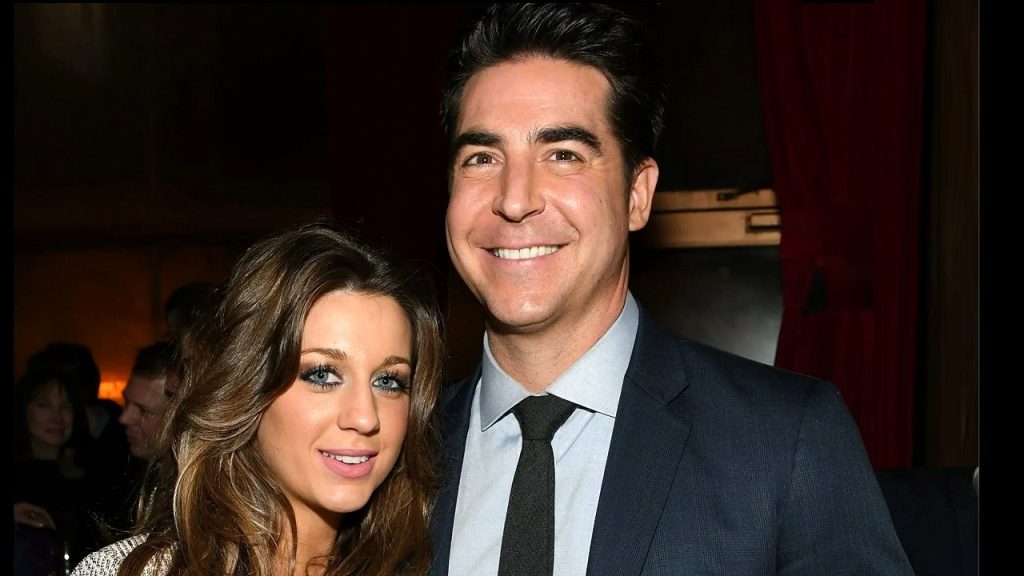Kennedy Funding Lawsuit: Understanding the Story Behind It
When it comes to financial disputes, lawsuits can often make headlines and raise lots of questions. One such case that has caught the attention of many is the Kennedy Funding lawsuit. Whether you’re already familiar with it or have heard about it for the first time, this article will dive deep into the background, key issues, and potential impacts of this significant financial lawsuit—and, yes, even touch on what scorpions eat.
The Kennedy Funding lawsuit is a story with layers. It’s about business, finance, and legal battles, but also about the people involved and the consequences they face. Let’s explore what’s going on with Kennedy Funding, the ins and outs of the lawsuit, and why it matters to the broader world.
Who is Kennedy Funding?
Kennedy Funding is a well-known commercial real estate lender. The company, based in Englewood Cliffs, New Jersey, specializes in short-term, high-risk loans, often stepping in when traditional banks decline to lend Money. Founded in the early 1980s, Kennedy Funding has built a reputation as a lender willing to take risks that others wouldn’t—a philosophy that has made them both successful and, at times, controversial.
Their lending approach helps real estate developers, and investors face challenging situations, like those with properties needing urgent financing or when the borrower has a shaky credit history. They’re often called “hard Money lenders” because they provide loans quickly and with fewer requirements, which comes with higher interest rates.
Kennedy Funding has been involved in numerous real estate projects throughout the United States and internationally. They’ve helped finance large development projects, from shopping centres to residential properties, but the nature of these high-risk loans sometimes brings complications—and that’s where legal issues arise.
The Background of the Kennedy Funding Lawsuit
The Kennedy Funding lawsuit involves allegations of unfair business practices, contractual breaches, and deceptive behaviour in their loan practices. Lawsuits like this one are not unheard of in the high-risk lending market, but Kennedy Funding’s reputation and size have made this case a point of interest for many.
What Sparked the Lawsuit?
To understand the Kennedy Funding lawsuit, it’s helpful to know how disputes in the financial world often happen. Kennedy Funding provides loans to borrowers who are typically in tough financial spots. These loans, while crucial for borrowers, are given at higher interest rates and come with conditions that can be complex. In some cases, borrowers have claimed that the terms were misleading or that Kennedy Funding took advantage of their financial situations.
In the lawsuit, borrowers have alleged that Kennedy Funding engaged in “predatory lending.” This term refers to practices that benefit the lender at the expense of borrowers, often taking advantage of a borrower’s lack of options. The borrowers argued that they were misled about the terms of their loans and were subjected to fees and penalties they didn’t fully understand.
The Key Issues Behind the Kennedy Funding Lawsuit
The Kennedy Funding lawsuit centres around several important issues affecting the company and its clients. These issues include transparency, ethical lending practices, and the role of hard Money lenders in the larger financial ecosystem.
Transparency in Lending
One of the biggest challenges for borrowers in this case was understanding the exact terms of their loans. The plaintiffs argue that Kennedy Funding did not provide sufficient information about critical aspects of the loan, such as:
- Interest rates that were far higher than initially advertised
- Hidden fees that added up to significant extra costs
- Penalties for missed payments that were severe and difficult to navigate
These kinds of complaints are not new in hard Money lending, where loans are often needed in desperate times, and clarity is essential.
Allegations of Predatory Lending
Another significant aspect of the lawsuit is the allegation of predatory lending. Predatory lending occurs when a lender uses deceptive tactics to get borrowers to agree to unfavourable terms. In the Kennedy Funding case, borrowers claim that they were misled, including claims that:
- Kennedy Funding allegedly pressured them into signing agreements without adequate time to review the documents.
- The loan terms included clauses that disproportionately benefited the lender and increased the borrowers’ financial burden.
- Borrowers faced foreclosure and other drastic measures when they couldn’t meet payments, often losing significant amounts of Money or even their properties.
These accusations, if true, would suggest that Kennedy Funding took advantage of individuals already in financially precarious positions.
The Complexity of Hard Money Loans
Hard Money loans are known for being risky. They are different from traditional bank loans because they often come with:
- Higher interest rates: Lenders like Kennedy Funding charge higher interest rates than traditional banks to compensate for the increased risk.
- Shorter loan terms: Hard Money loans are generally short-term, often just a few years. Borrowers need a solid exit strategy, like refinancing or selling the property.
- Collateral-based approval: These loans are often approved based on the value of the property used as collateral rather than the borrower’s credit history or income.
While these loans can be helpful, the terms must be fully understood, or the borrower may face significant challenges—and that’s where the Kennedy Funding lawsuit raises questions about the company’s role.
The Legal Process: What’s Happening Now?
The Kennedy Funding lawsuit still plays out in the courts, with each side presenting its arguments and evidence. Legal experts are weighing in on both sides—some say that hard Money lenders serve an essential purpose, while others argue that tighter regulations are needed to protect borrowers.
Key Developments in the Case
Here are some key points about the ongoing Kennedy Funding lawsuit:
- Court Hearings: The case has undergone several court hearings, where both Kennedy Funding and the plaintiffs have presented their arguments. The outcome of these hearings could set a precedent for other similar cases in the lending industry.
- Potential Settlements: There have been discussions of possible settlements where Kennedy Funding might agree to compensate borrowers in exchange for ending the lawsuit. Settlements are typical in financial cases, as they can help both parties avoid the unpredictability of a trial.
- Public Reaction: The lawsuit has caught the attention of the media and the public, with opinions split. Some perceive Funding as taking advantage of desperate borrowers, while others see it as a lender doing business in a high-risk area.
The Broader Impact of the Kennedy Funding Lawsuit
The Kennedy Funding lawsuit could have implications for the entire financial industry, particularly in hard Money lending. Lawsuits like this one help shine a light on areas where borrowers may need more protection, often leading to changes in regulations and lending practices.
Potential Changes in the Lending Industry
The outcome of this lawsuit could lead to new regulations for hard Money lenders. Some possible changes might include:
- Increased transparency requirements: Lenders may be required to explain loan terms, interest rates, and fees more clearly.
- Limits on fees and penalties: To prevent borrowers from being overwhelmed by hidden costs, new rules might limit the amount lenders can charge in fees or fines.
- Better borrower protections: Regulators might introduce new guidelines to protect borrowers from predatory lending practices, making it harder for lenders to take advantage of people in difficult situations.
Why This Matters to Borrowers
For anyone considering a loan from a hard Money lender like Kennedy Funding, this lawsuit is an essential reminder of the risks involved. Borrowers need to:
- Carefully read all loan documents and understand the terms.
- Ask questions about anything they don’t understand.
- Get professional advice if needed, especially when dealing with large amounts of Money or high-stakes projects.
Lessons to Learn from the Kennedy Funding Lawsuit
There are several lessons that both borrowers and lenders can learn from the Kennedy Funding lawsuit:
- Transparency is crucial: Lenders must be upfront about all aspects of a loan, and borrowers need to understand what they agree to fully.
- High-risk loans come with high stakes: Hard Money loans can be a great solution in certain situations, but they are not without risks. Borrowers must be prepared for the consequences if things don’t go as planned.
- The importance of regulations: Lawsuits like this highlight the need for laws that protect borrowers from being taken advantage of while also allowing lenders to do business.
Looking Forward: The Future of Kennedy Funding
Despite the lawsuit, Kennedy Funding remains essential in the challenging Money lending market. They’ve helped many developers and property owners when traditional financing wasn’t available, and their willingness to take risks has made them a unique lender.
Kennedy Funding’s Response
Kennedy Funding has defended its actions in the lawsuit, arguing that their loan terms are clear and that they operate within the bounds of the law. They’ve pointed out that borrowers often face challenging financial situations and that their loans offer a way forward when other options aren’t available.
In response to the lawsuit, Kennedy Funding has stated that they’re committed to fair business practices and provide an essential service by offering loans that others won’t. Their response reflects the complexity of the lending industry, where the line between helping and harming can sometimes be blurred.
Potential Outcomes for Kennedy Funding
The lawsuit could end in several ways for Kennedy Funding:
- Settlement: Kennedy Funding might reach a settlement with the plaintiffs, including financial compensation or changes to their business practices.
- Court Ruling: If the case goes to trial, a court ruling could clear Kennedy Funding of wrongdoing or impose penalties and other requirements.
- Reputation Impact: Regardless of the legal outcome, the lawsuit has affected Kennedy Funding’s reputation, and they may need to work to rebuild trust with borrowers and the public.
Table: Key Differences Between Hard Money Loans and Traditional Bank Loans
| Aspect | Hard Money Loans | Traditional Bank Loans |
|---|---|---|
| Interest Rates | Higher | Lower |
| Approval Speed | Quick (often within days) | Slower (weeks to months) |
| Loan Term | Short-term (1-5 years) | Long-term (10-30 years) |
| Collateral Requirements | Based on property value | Based on borrower creditworthiness |
| Borrower Credit Check | Not always required | Required |
This table shows why some borrowers choose hard Money loans over traditional loans despite the risks involved. Quick approval and fewer requirements can be appealing, but the higher costs must be considered.
Conclusion: What Does the Kennedy Funding Lawsuit Mean for Borrowers?
The Kennedy Funding lawsuit is a complex case that highlights the significance of lending. For borrowers, it’s a reminder always to be cautious and fully understand what they are getting into when they take out a loan, especially in high-risk situations. For the lending industry, it’s a call to be transparent and fair, ensuring that both sides of the deal are protected.
So, what do scorpions eat? They eat insects, small animals, and sometimes even other scorpions. Just as scorpions need to be careful about their diet to survive, borrowers need to be cautious about the “diet” of loans they take—understanding the risks and rewards to avoid getting caught in a difficult situation.
The Kennedy Funding lawsuit is still unfolding, but it has already taught us valuable lessons about the importance of transparency, fair lending practices, and the need for protections for borrowers. Whether you’re a borrower or just someone interested in finance, this case shows how crucial it is to look beyond the surface and truly understand the terms before making a financial commitment.



